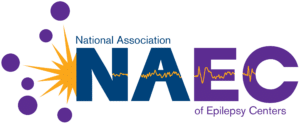Northeast Georgia Health System is dedicated to providing expert care for individuals experiencing seizures and epilepsy-related conditions. Our Epilepsy Monitoring Unit (EMU) offers advanced diagnostic services and comprehensive treatment plans to help patients manage their epilepsy and improve their quality of life.
What is an Epilepsy Monitoring Unit (EMU)?
An Epilepsy Monitoring Unit is a specialized inpatient facility designed to diagnose, monitor and evaluate seizure disorders in a controlled medical environment. The EMU allows our team of board-certified epileptologists and experienced technologists to closely observe brain activity using continuous video EEG monitoring (cEEG) over an extended period. This helps in identifying seizure types, determining the best treatment options and distinguishing seizures from other neurological conditions.
The EMU is ideal for individuals who:
- Have uncontrolled or frequent seizures despite medication
- Require further evaluation for epilepsy surgery or treatment modifications
- Need clarification of their diagnosis, as some conditions can mimic epilepsy
- Experience non-epileptic seizure-like events that require specialized testing
Before scheduling a stay in the Epilepsy Monitoring Unit, our team conducts a thorough outpatient consultation to determine whether EMU monitoring is the right course of action. During this visit, an epileptologist—a neurologist specializing in epilepsy care—will:
- Review your medical history and past seizure activity.
- Discuss any previous diagnostic tests such as EEGs, MRIs, or medication trials.
- Assess your current treatment plan and its effectiveness.
- Determine whether an EMU stay is necessary based on symptom patterns and diagnostic needs.
If an EMU stay is recommended, our team will explain the monitoring process, expected duration, and preparations required before admission. This ensures patients are fully informed and receive the most appropriate and effective care for their condition.
- Admission & Setup: Upon admission, patients are fitted with EEG electrodes that continuously record brain activity. A video camera also monitors physical responses, providing a complete picture of seizure activity.
- Seizure Monitoring: Patients stay in a comfortable, controlled hospital setting where they are closely monitored by specialty trained nurses, board-certified neurologists our neurophysiology team. Medications may be adjusted to provoke seizure activity safely for accurate diagnosis.
- Data Analysis & Treatment Planning: Once a sufficient amount of data is collected, our neurology specialists analyze the results to develop a personalized treatment plan tailored to the patient’s specific condition. Treatments may include medication adjustments, referral to a different specialist if seizures are non-epileptic, nerve stimulation surgery or further evaluation.
- Continuous Video EEG Monitoring (cEEG): Captures brain activity and physical movements over 24–72 hours.
- Sleep-Deprived EEG: Used when nocturnal seizures are suspected.
- Neuroimaging & advanced neurological testing: Additional tools, such as MRI or PET scans, may be used for a comprehensive assessment.
- Photic stimulation, exercise or medication weaning: These techniques may be used to induce seizures in a controlled environment to make a diagnosis.
Choose NGMC for Epilepsy Monitoring
NGHS provides expert epilepsy care through a team of board-certified neurologists and neurophysiology specialists who are experienced in epilepsy care and diagnostic testing. We utilize the latest neurodiagnostic equipment to ensure precise and comprehensive evaluations.
If you or a loved one are experiencing seizures or need a more accurate diagnosis of a seizure disorder, the Epilepsy Monitoring Unit at NGHS is here to help. Schedule a consultation with one of our neurology specialists today to learn more about your options and take the next step toward better seizure management.
Frequently Asked Questions
Patients should bring comfortable, loose-fitting clothing, personal hygiene items, entertainment (such as books or crafts) and a list of current medications. Since monitoring may last several days, bringing familiar items for comfort is recommended. We also will have you bring all your medications and supplements so they can be given to you appropriately throughout your stay.
Patients are encouraged to stay in the monitored area for accurate data collection, but they are not necessarily confined to bed. Movement may be limited to ensure proper monitoring, but our team will help make your stay as comfortable as possible.
Patients are required to have one support person stay with them for the entire duration of their EMU stay to ensure the patient is never left alone for any period of time.
Yes, patients are provided with meals and are allowed to eat and drink as usual unless otherwise instructed by their physician for testing purposes.
The length of stay varies depending on the individual case, but most patients stay between three to four days. Some cases may require a longer duration to capture sufficient seizure activity, but this is not common.
No, EEG monitoring is a painless, non-invasive procedure. Some patients may experience mild discomfort from the electrodes, but there are no needles or invasive techniques involved.
After monitoring is complete, your care team will analyze the collected data and coordinate additional appointments. A follow-up plan, including potential medication adjustments or treatment recommendations, will be developed based on the findings.


